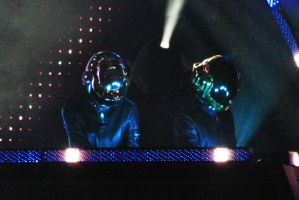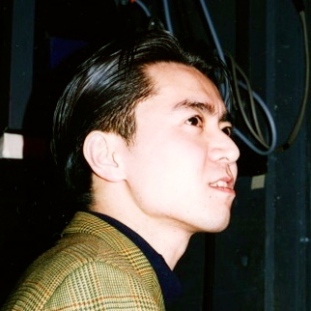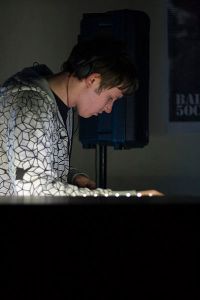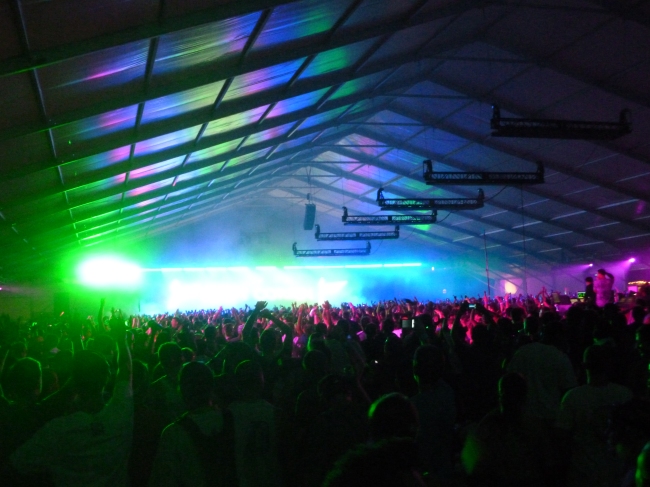In the past, the term French House has been used as a blanket term for house music produced by French people. Uh…okay…
Now, it refers more to nu-disco, which relies heavily on old funk samples, a tempo from 100 to 110BPM, DMX drum machines, and a gargantuan amount of sidechain compression. French House just sounds fat, you know? It’s so punchy…it’s just great.
According to the Wikipedia page, French House never saw an ’emergence,’ but rather just developed organically over time.
With all that being said, let’s look at a few examples:
Daft Punk: The Godfathers of French House
Just like UK Garage wouldn’t exist without Burial, French House wouldn’t exist without Daft Punk. Comprised of Guy-Manuel de Homem-Christo and Thomas Bangalter, the duo completely redefined dance music with their sophomore album Discovery, which was released in 2001.
Before Discovery, dance music was…well…robotic. Artists like Kraftwerk and Hallucinogen used samples, drum machines, and synths just like Daft Punk, but their music had no soul, and Daft Punk’s music had a lot.
Daft Punk was arguably one of the first electronic artists to utilize old funk samples and grooves to create music that sounded real, despite the fact that it was created and arranged electronically. By doing this, they essentially redefined dance music.
Aside from Daft Punk, there aren’t many other French House artists that are worth mentioning…
Except Justice.



